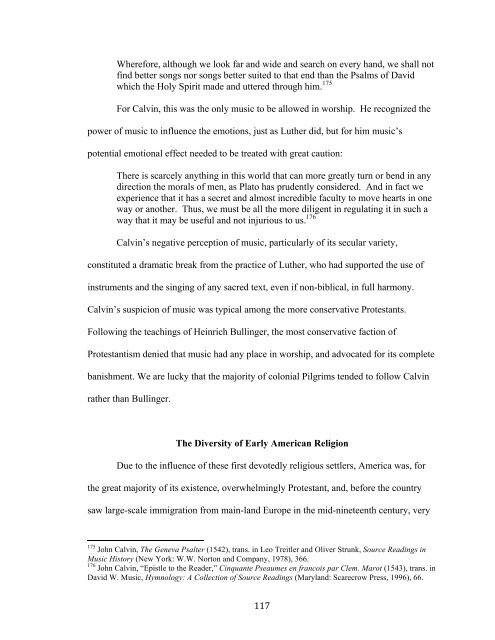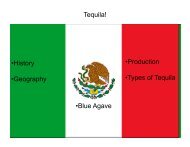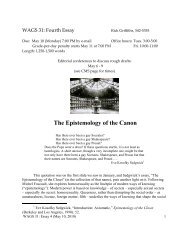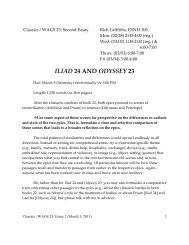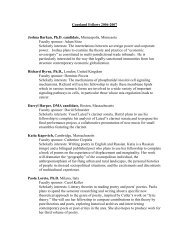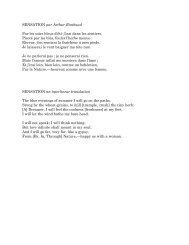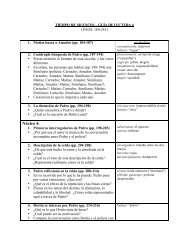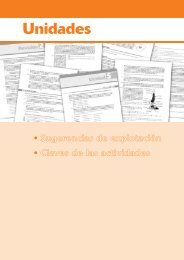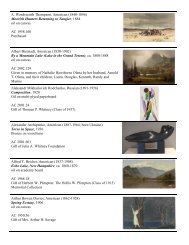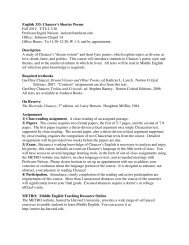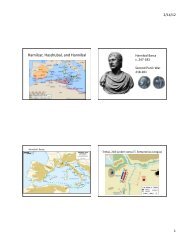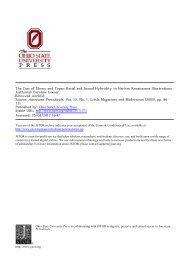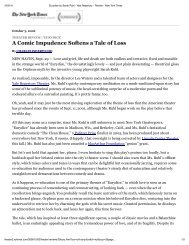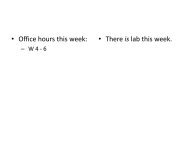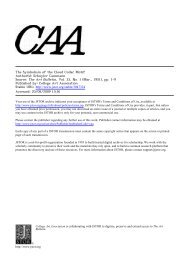Finding Their Voices - Amherst College
Finding Their Voices - Amherst College
Finding Their Voices - Amherst College
Create successful ePaper yourself
Turn your PDF publications into a flip-book with our unique Google optimized e-Paper software.
Wherefore, although we look far and wide and search on every hand, we shall not<br />
find better songs nor songs better suited to that end than the Psalms of David<br />
which the Holy Spirit made and uttered through him. 175<br />
For Calvin, this was the only music to be allowed in worship. He recognized the<br />
power of music to influence the emotions, just as Luther did, but for him music’s<br />
potential emotional effect needed to be treated with great caution:<br />
There is scarcely anything in this world that can more greatly turn or bend in any<br />
direction the morals of men, as Plato has prudently considered. And in fact we<br />
experience that it has a secret and almost incredible faculty to move hearts in one<br />
way or another. Thus, we must be all the more diligent in regulating it in such a<br />
way that it may be useful and not injurious to us. 176<br />
Calvin’s negative perception of music, particularly of its secular variety,<br />
constituted a dramatic break from the practice of Luther, who had supported the use of<br />
instruments and the singing of any sacred text, even if non-biblical, in full harmony.<br />
Calvin’s suspicion of music was typical among the more conservative Protestants.<br />
Following the teachings of Heinrich Bullinger, the most conservative faction of<br />
Protestantism denied that music had any place in worship, and advocated for its complete<br />
banishment. We are lucky that the majority of colonial Pilgrims tended to follow Calvin<br />
rather than Bullinger.<br />
The Diversity of Early American Religion<br />
Due to the influence of these first devotedly religious settlers, America was, for<br />
the great majority of its existence, overwhelmingly Protestant, and, before the country<br />
saw large-scale immigration from main-land Europe in the mid-nineteenth century, very<br />
!!!!!!!!!!!!!!!!!!!!!!!!!!!!!!!!!!!!!!!!!!!!!!!!!!!!!!!!<br />
175 John Calvin, The Geneva Psalter (1542), trans. in Leo Treitler and Oliver Strunk, Source Readings in<br />
Music History (New York: W.W. Norton and Company, 1978), 366.<br />
176 John Calvin, “Epistle to the Reader,” Cinquante Pseaumes en francois par Clem. Marot (1543), trans. in<br />
David W. Music, Hymnology: A Collection of Source Readings (Maryland: Scarecrow Press, 1996), 66.<br />
! 117!


